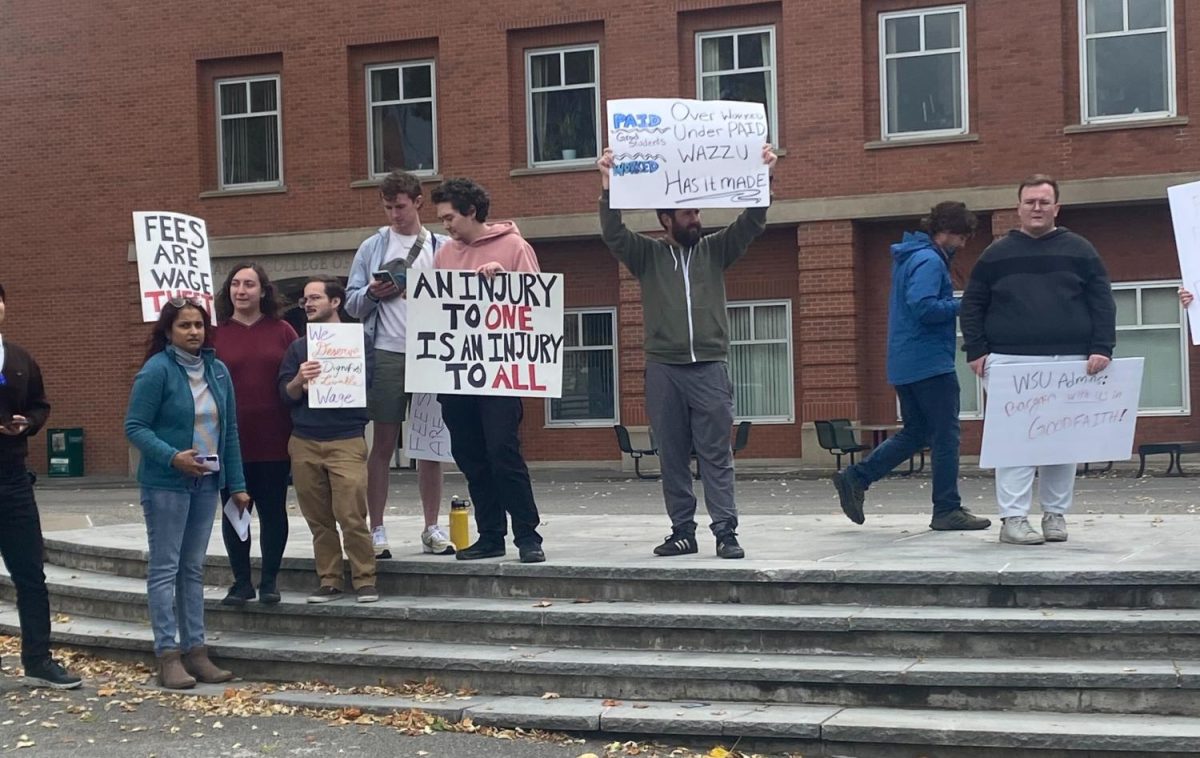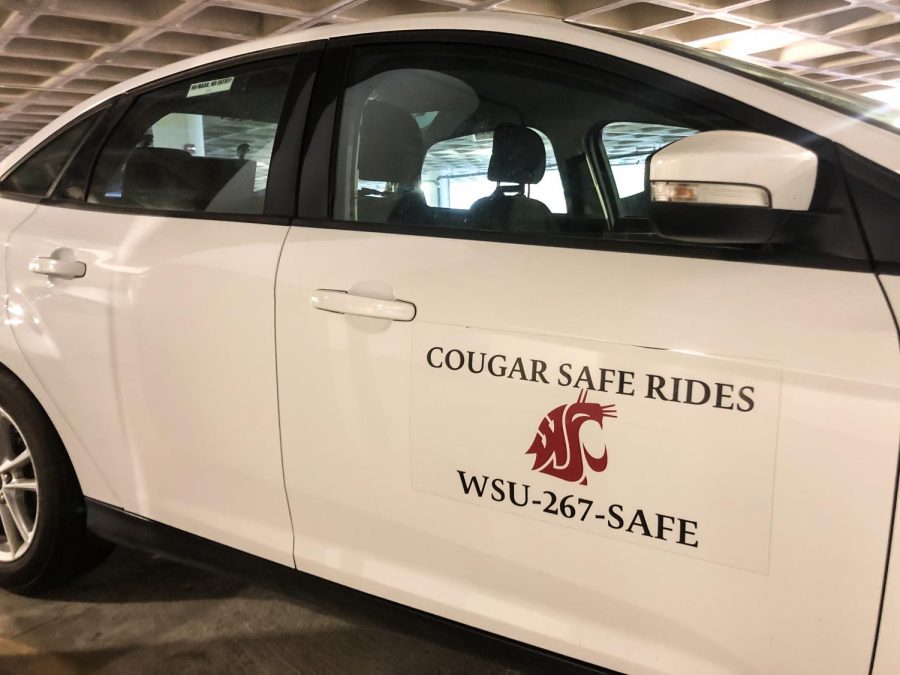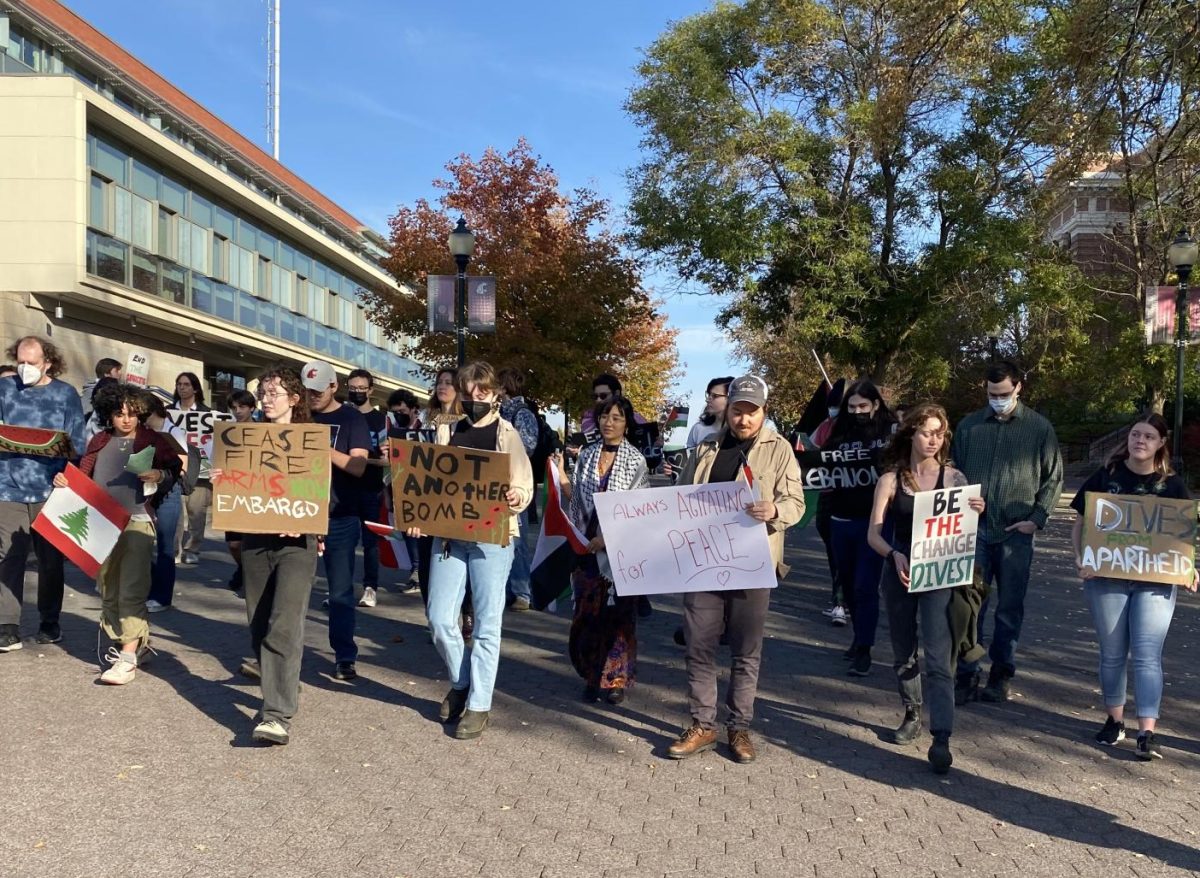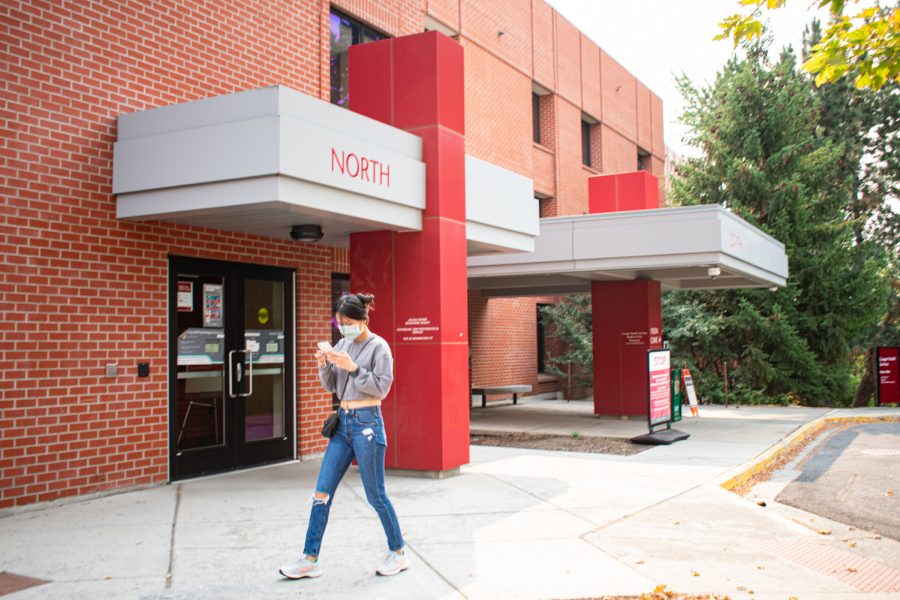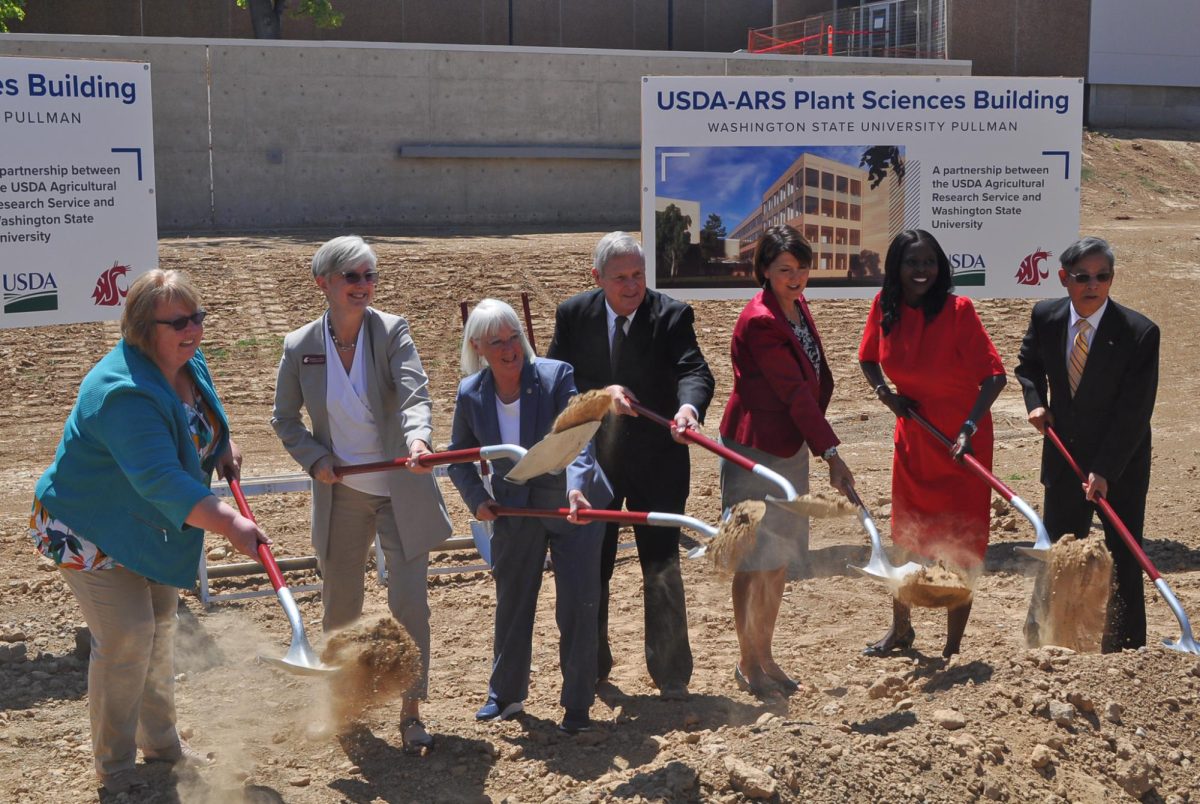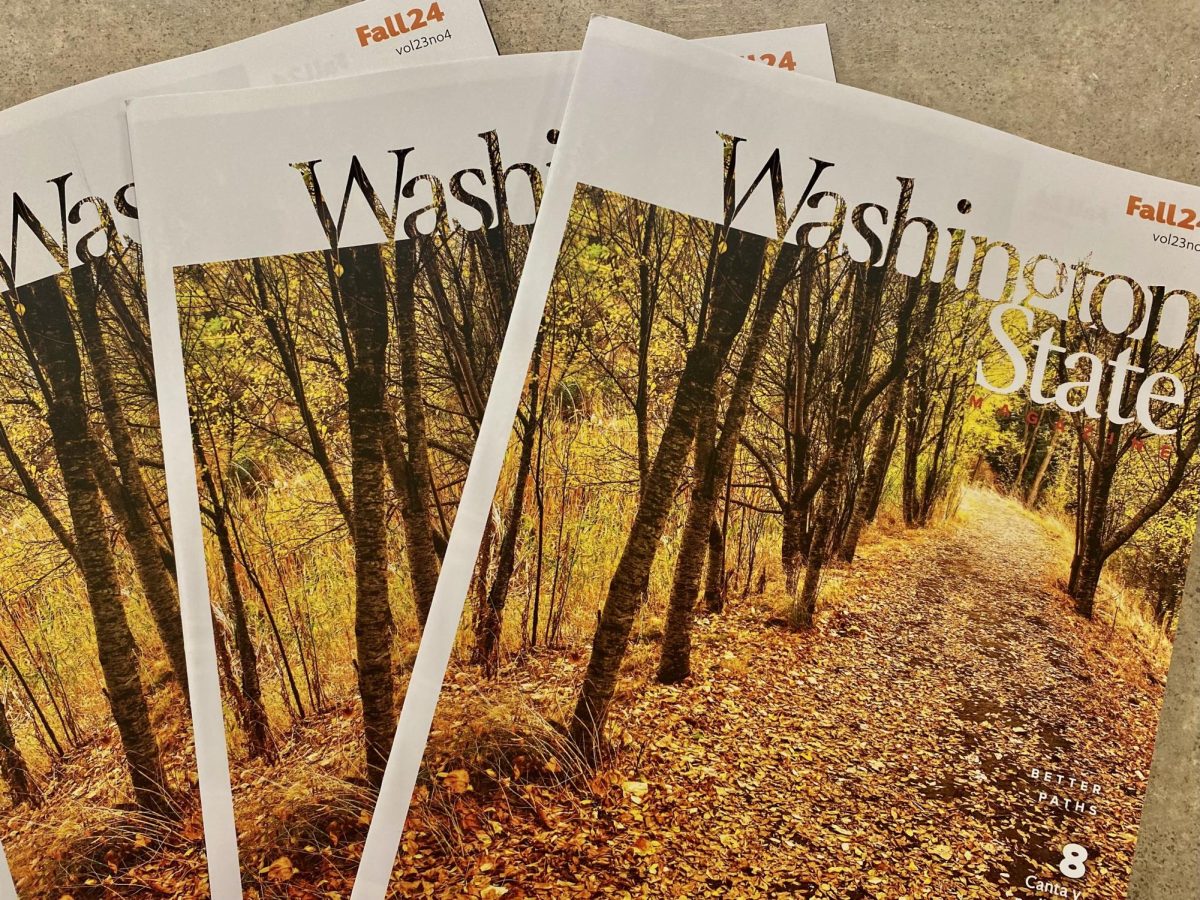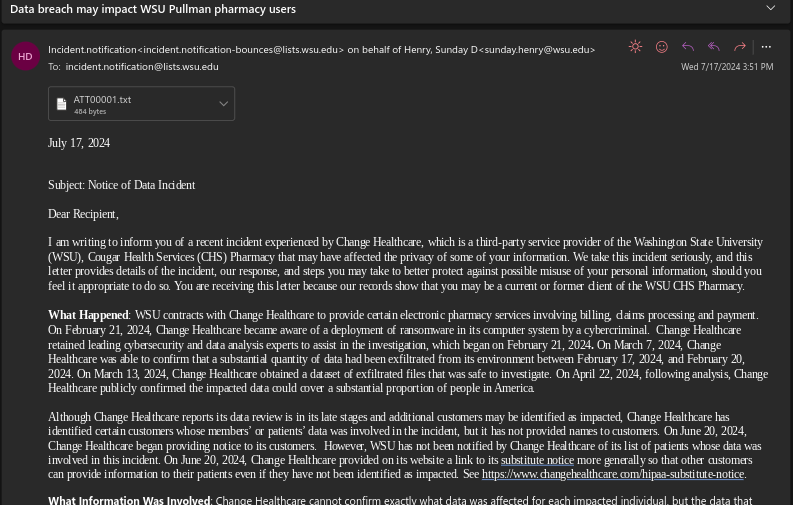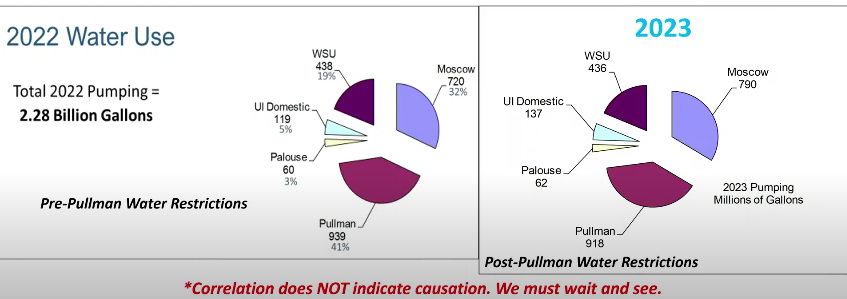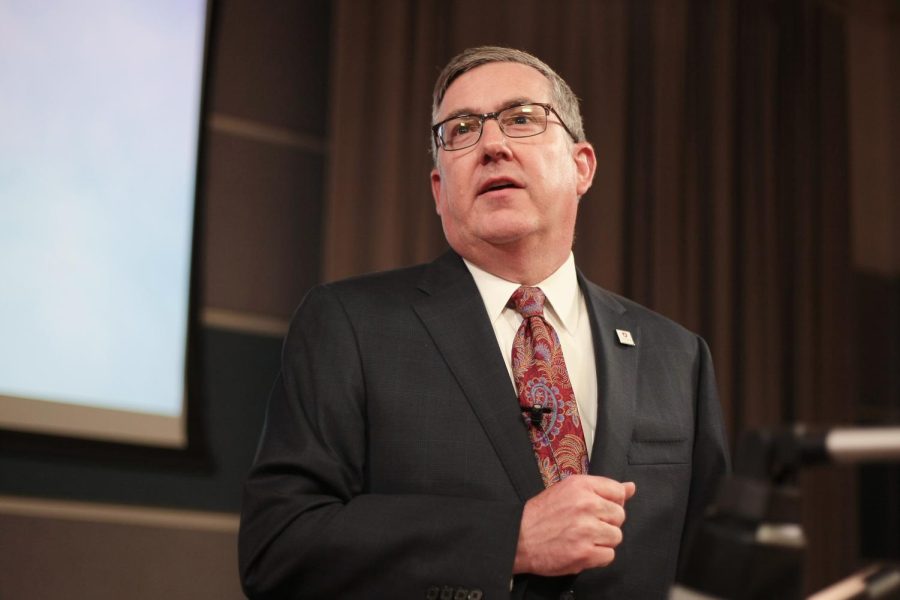WSU’s Coalition of Academic Student Employees has filed an unfair labor lawsuit against WSU.
CASE is a student union that consists of WSU Academic Student Employees which includes graduate students, undergraduate students, and teaching assistants. The union also includes research assistants, tutors, and graders.
Yiran Guo, WSU graduate research assistant, was one of the ASEs leading the rally and said they filed an unfair labor practice complaint to the state labor board for public employees, the Washington State Public Employment Relations Commission.
“We got certified last November and started requesting to bargain with WSU and then we got our first bargaining date in February of this year,” Guo said. “Throughout that time we have explicitly expressed that we needed to bargain for healthcare.”
Guo said WSU has not been bargaining in good faith with CASE, violating the dynamic status quo by making changes to their healthcare plans without bargaining.
“Early on we learned that WSU sent a request for proposal which they went into the market and started looking for insurance carriers throughout February and March of this year,” he said. “So when we learned that, we suggested that we be a part of the decision-making process.”
Guo said WSU notified CASE on May 5 that they unilaterally developed their own revisions of the healthcare plan.
“They gave us some choices and within a couple of days we were told to make a decision … Despite the short time frame, we came up with our proposal for bargaining and they weren’t able to incorporate that,” Guo said. “So they failed a legal obligation to partner with us on this matter.”
CASE bargaining demands are not limited to healthcare and cover several other issues including discrimination, low wages, workplace protection, immigration rights and professional development, he said.
Another issue of concern involves the low wages ASEs make for their work which has proven to be unsustainable for their livelihoods. Guo said they are bargaining a higher than current livable wage based on calculations from an MIT living wage calculator. It calculates all kinds of factors in Whitman County, not just Pullman.
“From 2022–23 I believe the livable wage level is at $2,700 so that’s where we are putting our wage proposal,” he said. “That’s what we got from the MIT calculator.”
Guo said ASEs have been historically lower paid for their labor and that the pay level for graduate students in Pullman is around $1,700 which is 40% below the livable wage.
Gavin Doyle, WSU English teaching assistant and third-year grad student, said ASEs deserve a dignified livable wage to be able to support themselves.
“The reality is a lot of folks who are ASEs and grad students have families and outside factors that they have to account for,” Doyle said.
Doyle said he sacrificed a lot to be at WSU like many other grad students. He teaches two sections of English 101 this semester and is trying to prepare for the qualifying exams that he is taking in February.
“With how much we are paid now it doesn’t reflect the kind of value we produce for the University,” Doyle said.
Research assistant Acacia Patterson said the current working conditions have significantly impacted her along with other ASEs. Patterson uses food stamps and food pantries due to ASEs receiving a non-livable wage.
“I have experienced bias and having a higher workload than acceptable for my position and hours as a student and employee,” she said.
Patterson said most of what WSU provides and wants to continue providing is the bare minimum. They want to negotiate stronger protections that consider their roles as both students and employees.
Many ASEs are rent-burdened and do not have access to childcare, healthcare or resources as international employees, she said.
“ASEs cannot work effectively under these working conditions,” Patterson said. “ASEs have been forced to take outside jobs in addition to their full-time schedule and have had to forgo groceries. They have also left their lab groups due to discrimination and harassment,”
ASEs conduct and publish research that brings in multimillion-dollar grants and a significant portion of these funds go to WSU, Patterson said. They also teach a significant portion of undergrad students as teaching assistants.
“WSU could not fulfill its purpose as a research and teaching institution without its ASEs,” Patterson said.
Phil Weiler, WSU vice president for marketing and communications, said WSU supports the right of workers to organize. The university has and continues to bargain in good faith and they hope to reach an initial contract agreeable to both parties, he said.
“The university and the union have made significant progress during their negotiations,” Weiler said.
The bargaining agreement process requires a lot of negotiation but there are many issues the WSU administration showed an unwillingness to negotiate on, she said.
“They have demonstrated that they will stall on our strong and fair collective bargaining agreement,” she said. “But we will continue to put pressure on them to speed up this process so that we can reach an agreement as quickly as possible.”


